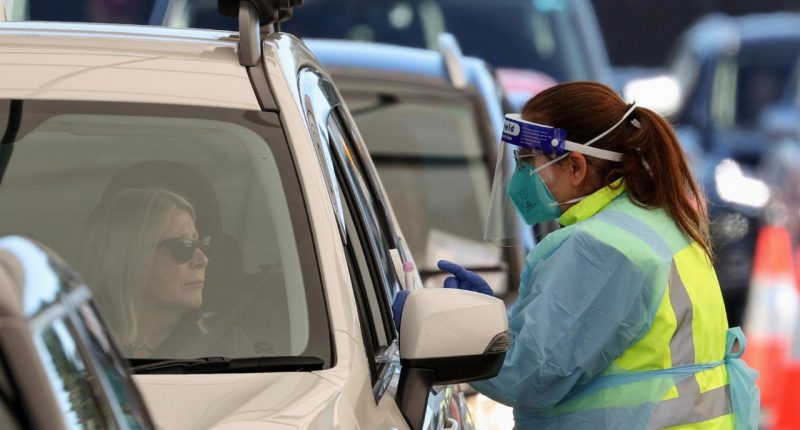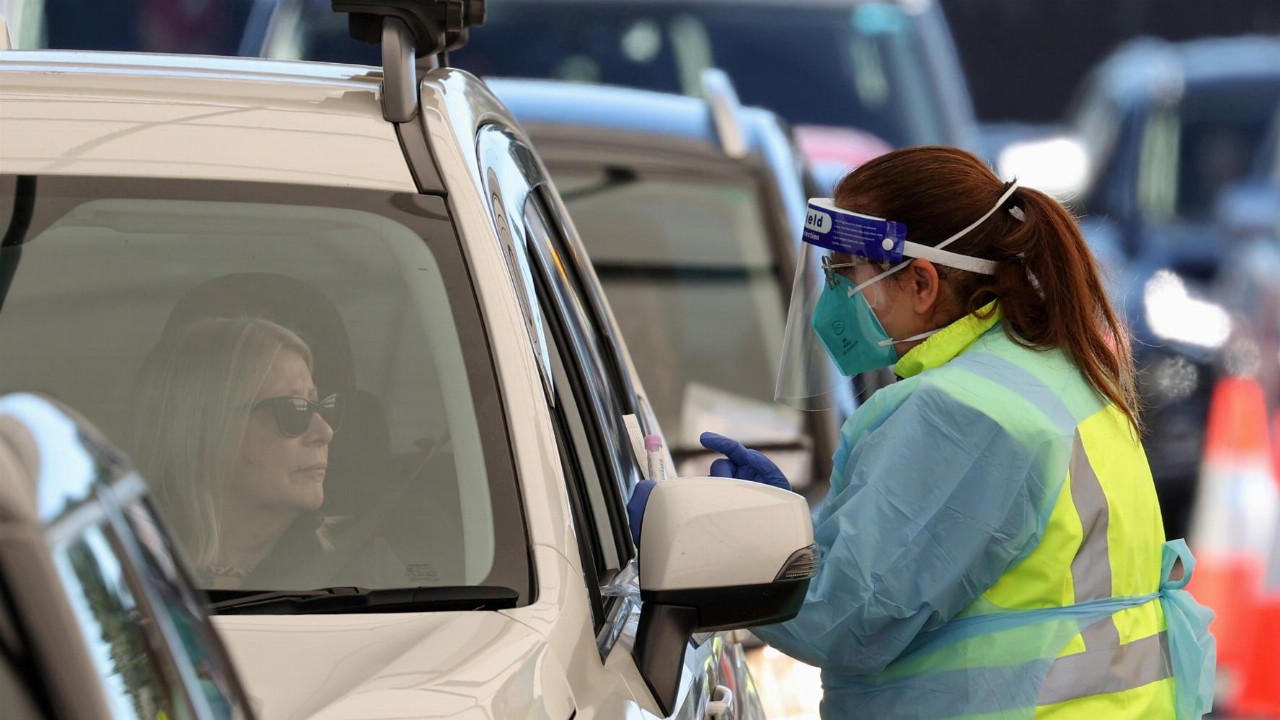- South African research suggests the Omicron variant may not be as severe as Delta, but the World Health Organisation recommended people remain wary
- Earlier last month when Omicron was first detected, preliminary data showed it was more resistant to the vaccinations than previous stands
- However, South Africa’s National Institute for Communicable Diseases (NICD) hinted patients infected with Omicron were less likely to be hospitalised in comparison to Delta
- London’s Imperial College agreed with NICD’s suspicions, saying the risk of hospitalisation for patients with Omicron was 40 to 45 per cent lower than patients infected with Delta
- In light of the rapid spread of Omicron, Germany, Scotland, Ireland, South Korea and the Netherlands have all imposed partial or full lockdowns in the attempt to slow the spread
South African research suggests the Omicron variant may not be as severe as Delta, but the World Health Organisation recommended people remain wary to avoid hasty conclusions.
In the wake of the rapid transmission of Omicron, countries around the world have imposed new restrictions in the lead up to Christmas.
Earlier last month, when Omicron was first detected, preliminary data indicated it was more resistant to the vaccinations developed before it emerged.
However, South Africa’s National Institute for Communicable Diseases (NICD) hinted patients infected with Omicron were less likely to be hospitalised in comparison to Delta.
London’s Imperial College corroborated NICD’s suspicions and found the risk of hospitalisation for patients infected with Omicron was 40 to 45 per cent lower than patients infected with Delta.
NICD’s study has not yet been peer-reviewed but included South Africa’s Omicron data from October and November and data from between April and November’s Delta breakout.
“In South Africa, this is the epidemiology: Omicron is behaving in a way that is less severe,” the NICD’s Professor Cheryl Cohen said.
“Compellingly, together our data really suggest a positive story of a reduced severity of Omicron compared to other variants.”
Although, NICD did highlight the majority of the population have already had COVID-19 and may have a stronger immunity to it.
WHO technical lead for COVID-19 Maria van Kerkhove said not enough information was yet available to draw a firm conclusion on the strain.
Ms van Kerkhove said the data was still too “messy” to be certain.
“We have not seen this variant circulate long enough in populations around the world, certainly in vulnerable populations. We have been asking countries to be cautious, and to really think, especially as these holidays are coming up,” she added.
Round the world restrictions
The WHO’s European head, Hans Kluge said three or four weeks were needed to determine Omicron’s severity, he said Omicron was likely to be the dominant strand in Europe in the next few weeks.
In the past 24 hours, France reported 84,272 new COVID-19 infections, close to their peak.
In light of the rapid spread of Omicron, Germany, Scotland, Ireland, South Korea and the Netherlands have all imposed partial or full lockdowns in the attempt to slow the spread.
Italy opened vaccination mandates to a wider category of workers, and Spain made it compulsory to wear face masks outdoors.
In the US, the Centre for Disease Control and Prevention (CDC) Director Rochelle Walensky said the seven-day average increased by 25 per cent week to date.
New Dehli banned celebrations over the festive period, while the Chinese city of Xian told residents to stay home in an attempt to slow the cases.
“There is no doubt that Europe is once again the epicentre of the global pandemic. Yes, I’m very concerned, but there is no reason for panic. The good news is… we know what to do,” Mr Kluge said.







